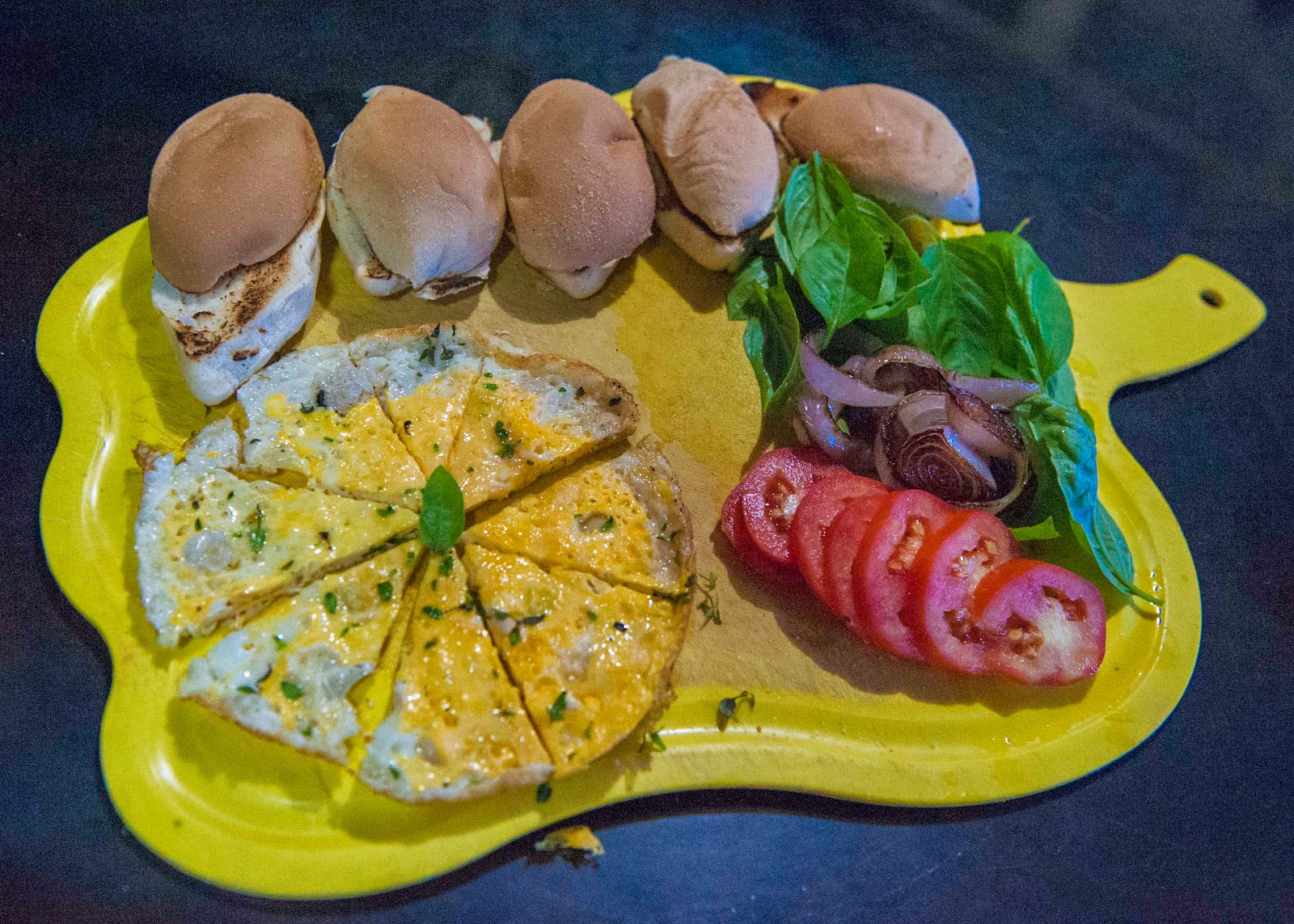Pizza Night With Real Mozzarella and Sugar Free Marinara Sauce
Pesto with tomato and sweet potato
With the abundance of basil we were able to make a modified version of pesto - parmesan cheese from the city and minus the pine nuts makes for a pretty good sauce to put on bread. Yeast is available in the market so tonight we will be trying out for the first time to make bread over a charcoal fire. With the readily available tomatoes, garlic, onion and bell peppers we should have a pretty decent pizza/flat bread.
Cinnamon and sugar
Tortilla Recipe
2 cups flour
1tsp baking powder
1tsp salt
dash of cinnamon
1/4c oil
1/2c warm water
Mix flour, baking powder, salt and cinnamon together.
Using a pastry knife or fork stir in the oil. Make sure the mixture is
crumply. Add the warm water. Let sit for 1 hour. Divide dough
into 16 balls, roll out and cook on a griddle for 30 seconds on each side.
Falafel Recipe
(1) can chickpeas
1 cup bean sprouts
2 small red onions
1/2 head roasted garlic
1 bunch green onions
5 calamansi (juiced)
1TBS cumin
1tsp cayenne pepper
1tsp nutmeg
salt and pepper to taste
1 egg
1/4c flour plus additional flour for coating
1/4c bread crumbs
Blend all ingredients in blender or food processor except for
egg, flour and bread crumbs. Once the ingredients are blended stir in the
egg, flour and bread crumbs. Once the batter is mixed form balls - the
batter should stay in this form. Add more flour or bread crumbs if it
doesn't hold. Roll the ball in flour to coat. Fry balls until
golden brown.






